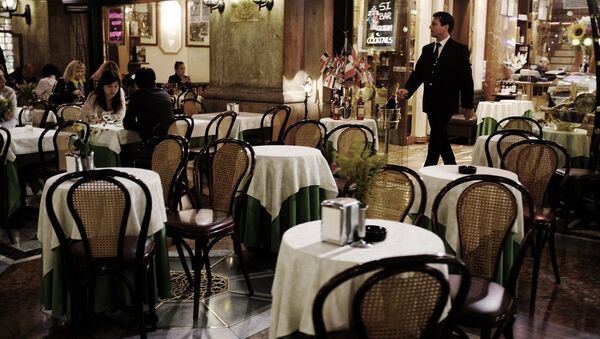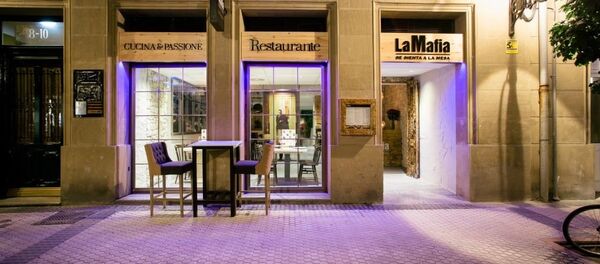Organized crime groups in Italy have taken advantage of the country's ongoing economic crisis to infiltrate Italy's legal economy "in an increasingly vast and widespread" manner, Coldiretti cautioned in a statement.
At least 5,000 restaurants across Italy are in the hands of the mafia, consumer group Coldiretti has warned…. https://t.co/sW0FqIYpp6
— Pizzo Beach (@PizzoBeach) April 5, 2017
The warning follows a sizeable anti-mafia sting over the weekend, which uncovered links between popular tourist restaurants and organized crime groups in Italy. Police seized the bank accounts and 24 properties of a Neapolitan family, including restaurants, amounting to €20 million (US$21.3 million) in value.
One restaurant was Donna Sophia dal 1931 in central Milan. On TripAdvisor, the establishment has mixed reviews — some customers criticized both the food and the service, with one reviewer saying the "bad ambiance" reminded him of McDonald's, and the manner in which the boss reminded him service was not included "was intimidating, and enough reason never to come back."
However, others were more positive, with one calling Donna Sophia dal 1931 "the perfect place" to experience "the art" of pizza, and praising the "delicious" food. The group is also behind Villa delle Ninfe, an event venue in Naples.
The use of restaurants as a screen for illegal Mafia activities is a common ploy. In 2015, two well-known restaurants in capital Rome were shut down due to connections with criminal groups, and the Calabria-based gang 'Ndrangheta were found to be behind a popular pizzeria — in New York. The group's international reach was again exposed in March 2016, when Swiss police detained 15 Italian nationals for membership of the criminal organization.
Some diners may not mind who ultimately owns a restaurant if the food and service are up to snuff, but Coldiretti said criminal proprietorship is often associated with cut corners in respect of health and safety, putting consumers and the environment at risk.
It's estimated agricultural crime — "agromafie" — raked in a whopping €21.8 billion (€23.3 billion) for underground groups in Italy in 2016, a 30 percent increase year-on-year, with mafia groups infiltrating all kinds of food businesses, from trendy bars to restaurants and chains, and even food production.
"Agriculture has become one of the priority investment areas for the underworld. They understand that it is strategic in a time of crisis because it allows them to infiltrate civil society in a widespread way and condition people's everyday lives," Coldiretti explained.
The entertainment industry is not the only legitimate commercial sector employed as a screen for illegal activities by organized crime groups — other popular industries include real estate and renewable energy.
Italy has struggled to shed itself of its connections with organized crime for decades.
In October 2016, the government successfully appealed to the EU to stop a Spanish restaurant chain selling Italian food from calling itself La Mafia (full name La Mafia se sienta a la mesa — The Mafia sits at the table), which had 38 franchised restaurants across Spain. The EU's Office of Brands and Design canceled the chain's brand number, theoretically compelling owners to change their name, although as of April 2017 the brand name remains unchanged.
Nonetheless, the country's history of battling the Mafia is claimed by officials to give Italy the edge in fighting Daesh.



